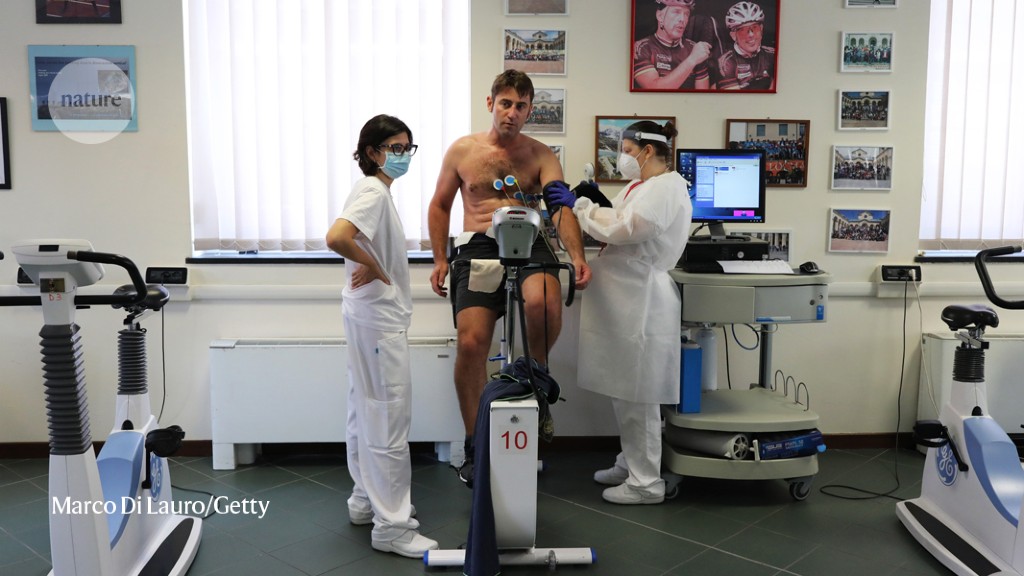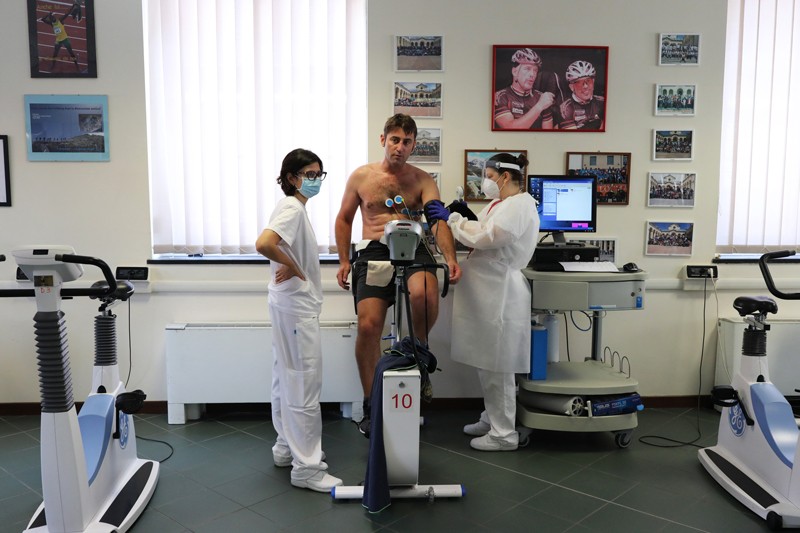‘Super-immunity’ might not be so super after all. New research1 suggests that protection against the SARS-CoV-2 virus slides over time even in people who have experienced both SARS-CoV-2 infection and had vaccines against it, a combination that initially provides hyper-charged immunity. The research, which has not yet been peer reviewed, was conducted before the Omicron variant emerged. But it sharpens questions about how well ‘super-immunity’ — also known as hybrid immunity — will fare against the latest iteration of the coronavirus.
Scientists are now racing to learn how much Omicron eludes immunity conferred by infection or vaccination. Preliminary results from laboratory studies suggest that vaccination and super-immunity offer some protection against the variant, and that super-immunity might offer more than jabs alone2,3,4 (this work has not yet been peer-reviewed).
However, previous evidence shows that the available vaccines’ potency against other coronavirus variants gradually dwindles, and public health officials say that Omicron’s spread has heightened the need for people to receive a booster dose. Whether hybrid immunity will prove more durable than vaccines against Omicron is not yet known.
Turbocharged immunity
The laboratory evidence is clear: people with hybrid immunity make higher levels of neutralizing antibodies, which are one piece of the immune system’s defence against SARS-CoV-2, than do people who’ve been either vaccinated or infected5. Neutralizing antibodies from people with hybrid immunity are also more potent than those of people who have only been vaccinated6,7,8. And data from people in Israel suggest that super-immunity protects against infection better than two doses of vaccine9.
To see how super-immunity ages, researchers analysed SARS-CoV-2 infections from early August to late September 2021 in more than 5.7 million Israelis sorted into three cohorts: those who had been infected by the virus and were still unvaccinated; those who had both recovered from infection and been vaccinated; and those who had received either 2 or 3 doses of vaccine and had not been infected.
The team found that over the study period, the infection rate in every group rose with the passage of time since either vaccination or infection. Notably, the infection rate rose even among participants who had hybrid immunity.
But hybrid immunity still held up well: People who received the second of two jabs six to eight months before the study period had an infection rate about seven times higher than that of people who had been infected and then received a single jab.
Where super-immunity is concerned, “this is the longest follow-up study we have”, says Charlotte Thålin, an immunologist and clinician at the Karolinska Insitute in Stockholm. “So it’s definitely strong data.”
But David Dowdy, an epidemiologist at Johns Hopkins Bloomberg School of Public Health in Baltimore, Maryland, notes that although the rate of breakthrough infections might be higher in the study’s vaccinated individuals, sickness caused by such infections is much less severe than in unvaccinated people. (There is too little data to draw conclusions about severe disease in vaccinated individuals infected by Omicron.)
The number of people with severe COVID-19 in each group was too small to explore the link between the source of immunity and disease severity, says Yair Goldberg, a statistician at the Technion — Israel Institute of Technology in Haifa and a co-author of the study.
Dowdy also adds that, because the study’s authors did not randomly assign participants to each cohort, the demographics differed significantly between the groups. As a result, behavioural differences between the groups might have skewed the data.
Spoiler alert: Omicron
The study period predated the identification of Omicron, which might upend the authors’ conclusions, says Amit Huppert, a mathematical biologist at the Gertner Institute for Epidemiology and Health Policy Research in Tel HaShomer, Israel, and a co-author of the study. “Two weeks ago, I might have said ‘don’t deal with the recovered population in their first year of recovery and focus your efforts on vaccinating other populations’,” he says. But the latest data showing that reinfections and breakthrough infections are more likely with the Omicron variant suggest that hybrid or boosted immunity will be key to preventing severe infection, he adds.
Dowdy says although these data will help public health officials to identify the most effective vaccine regimen, they should not have any bearing on policy today.
Huppert agrees. “At the end of the day, these are subtleties,” he says. “The main message is get vaccinated.”








More News
Author Correction: Bitter taste receptor activation by cholesterol and an intracellular tastant – Nature
Audio long read: How does ChatGPT ‘think’? Psychology and neuroscience crack open AI large language models
Ozempic keeps wowing: trial data show benefits for kidney disease